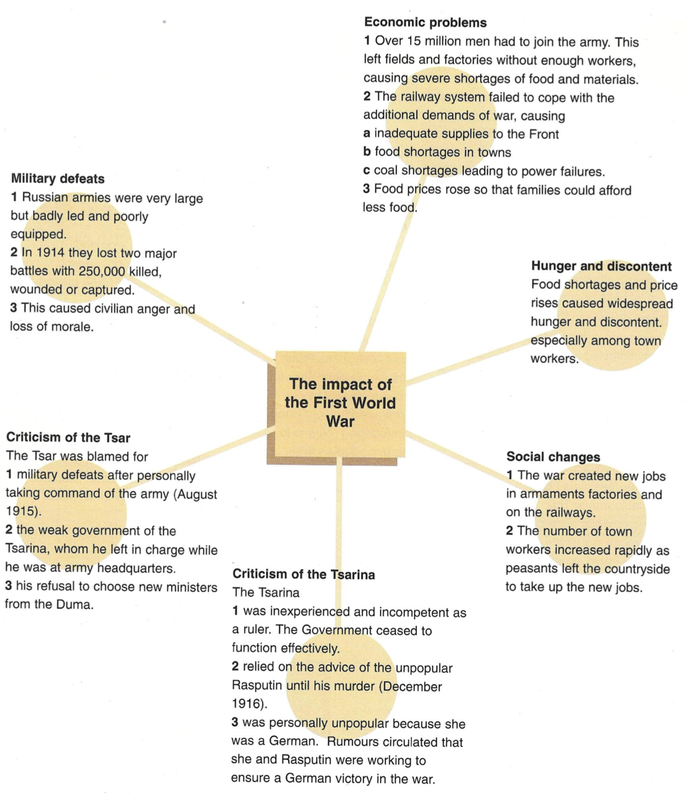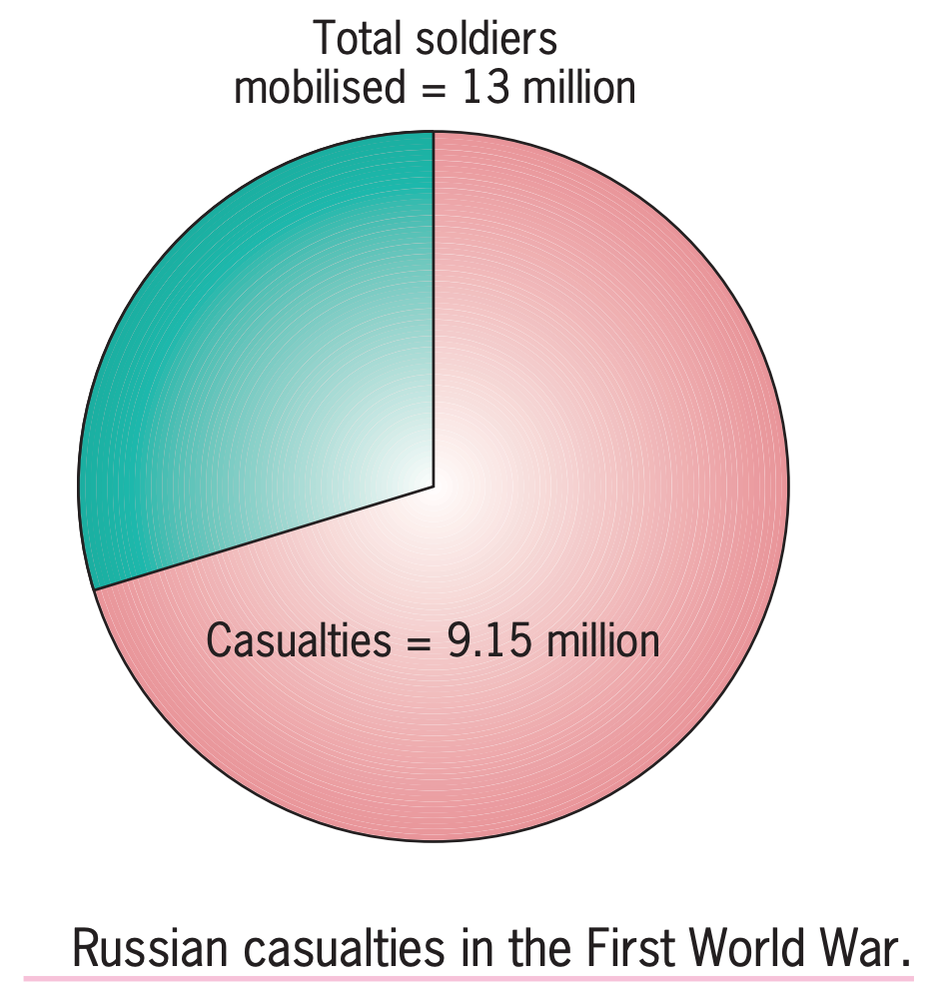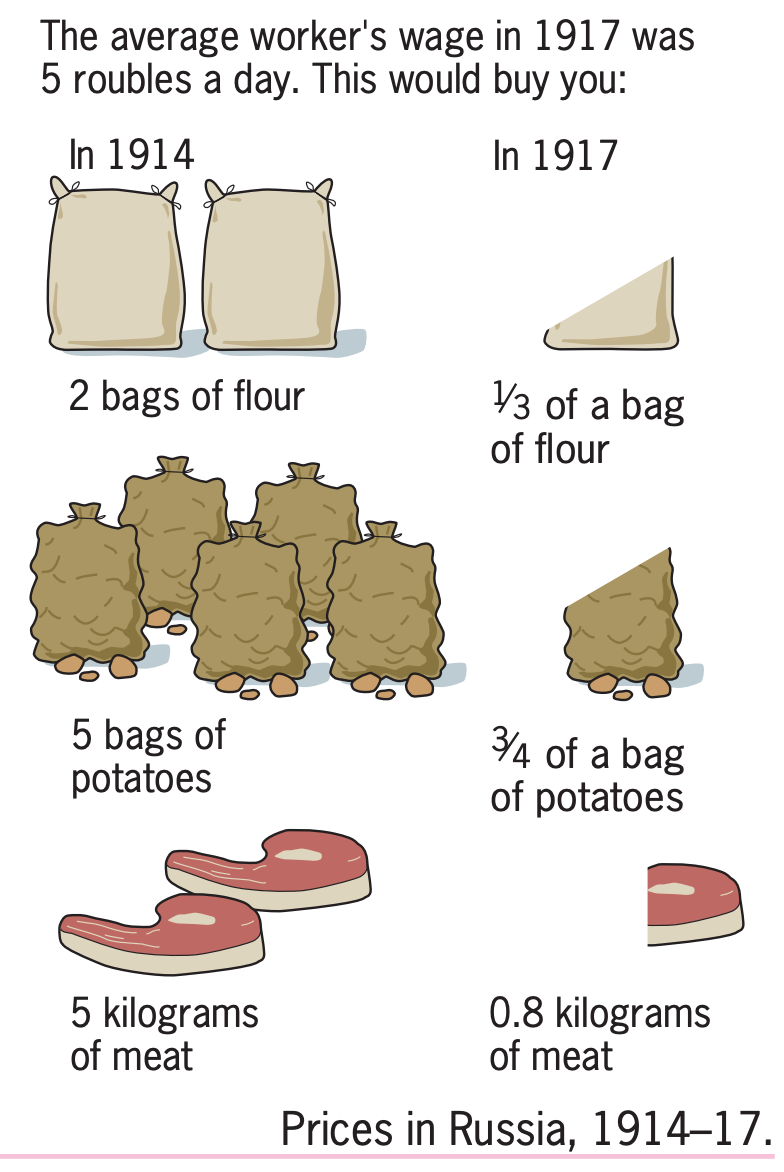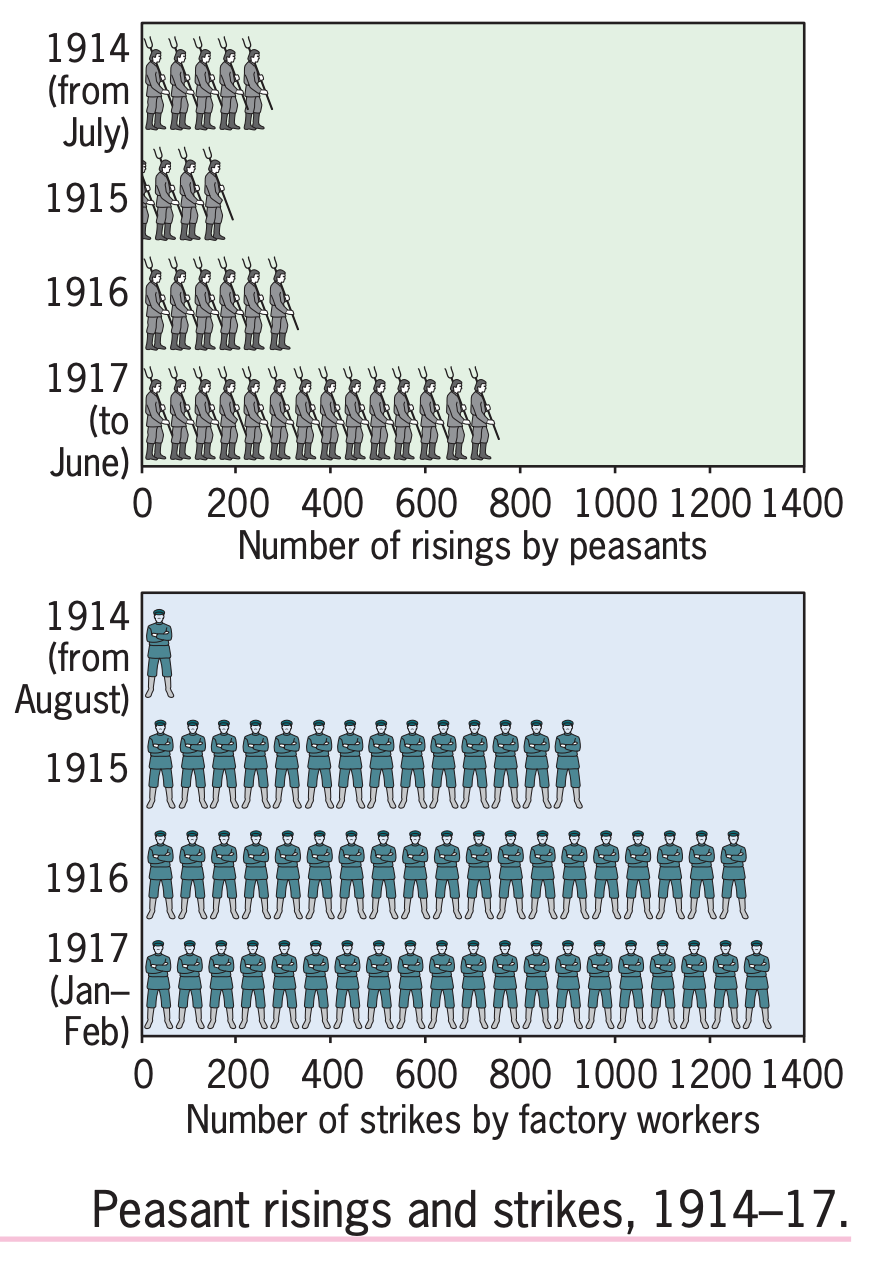Lesson 3 - The February Revolution 1917
|
As in 1905, war was going to be central to the events of February 1917. But so were the long-term causes you identified as underlying problems in 1900. Workers, peasants and ethnic minorities suffered considerably during the war, but the Tsar's popularity with the middle classes who had been appeased after 1905 also suffered. Perhaps most surprisingly even the nobility were calling for the Tsar to abdicate by the end of 1916. Indeed it was a group of aristocrats who organised the assassination of the Tsar's key advisor Rasputin in December 1916. They hoped that serious revolution might be avoided if the Tsar could be persuaded to stand down. But nothing is more dangerous for a weak government than making an attempt to reform.
|
|
As we saw when looking at the French Revolution in Year 11, Alexis de Tocqueville wrote that 'experience teaches that the most dangerous time for a bad government is usually when it begins to reform'. As in France in 1789, so in Russia in 1917.
War and Revolution
|
Activities
1. How did the First World War weaken the Tsar's government. Use the sources and text on pages 108-110 of your textbook to present an overview of how the war affected four different groups of people in Russian society. Use this sheet or as pdf (or your own version) to complete your work. It is important that you provide factual support - names, dates, numbers etc. - as supporting evidence for each of the four big points that you make. 2. Why was the February 1917 revolution successful? Using the information on page 110 of your textbook explain why 1917 was different from 1905 and why the Tsarist regime did not survive in 1917. |
|
Extension activity
The video below is an optional activity that focuses on the role of the aristocracy and the death of Rasputin. Designed for schools, you might find the explanation of the events of 1917 somewhat simplistic.
The video below is an optional activity that focuses on the role of the aristocracy and the death of Rasputin. Designed for schools, you might find the explanation of the events of 1917 somewhat simplistic.
|
|





